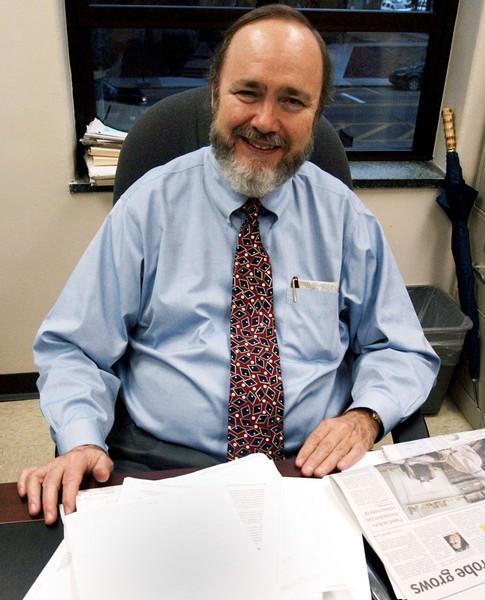As relations between the United States and North Korea have made national news, so has a man who has catalogued the totalitarian nation: University mass communication Professor Brad Martin.
Martin, a seasoned journalist and author of the recent book, “Under the Loving Care of the Fatherly Leader,” has appeared on CNN’s “Lou Dobbs Tonight Show,” National Public Radio and in several major newspapers. The Feb. 10 New York Times Review of Books called his book, “simply the best book ever written about North Korea.”
Martin said his extensive travel and experience as a journalist have given him a unique insight into North Korea.
“Everything is different from what Americans are used to,” Martin said. “There are many things about their lifestyles that we would disapprove of.”
Martin traveled to North Korea for the first time in 1979 when he was working as a foreign correspondent for The Baltimore Sun. While there, he wrote a review for the Wall Street Journal of Korean ruler Kim Il-Sung’s trip to China.
Martin said he was being honest in his less-than-favorable review, but the North Korean government took offense. It blacklisted him in 1983.
Martin returned to North Korea in 1989 and was blacklisted again.
“It’s such a strange place — so different from America,” Martin said. “The personality cult around their leader was almost like a religion. They could hardly utter a sentence without praising ‘the great leader.’”
Martin said the Koreans’ adoration of Kim Il-Sung left Martin uneasy, especially during a point in history when people were so quick to criticize their leaders.
“They seemed sincere,” he said. “But I thought their attitude was strange for modern times.”
Despite the strong difference between the two countries, Martin said he thinks peace is possible.
“There is no fundamental reason why America and Korea can’t be friends,” Martin said.
Martin said if the United States does not make peace with North Korea, the United States’ enemies will turn to North Korea for nuclear weapons.
Martin received his undergraduate degree in history from Princeton University in 1964. He went to Emory University Law School for one year but then dropped out and entered the Peace Corps.
Martin said he had been studying Chinese in college and wanted to go to Asia to study its culture.
He originally wanted to join the Special Forces, but his wife wanted to travel with him. They decided to join the Peace Corps together.
Martin joined after one year of law school because he had been reading favorable Time and Newsweek coverage of the Vietnam War.
“I figured that this was my generation’s war,” Martin said. “It looked like a really good cause.”
Martin and his wife were sent in October 1965 to Thailand, very close to the war zones.
Shortly after his arrival, Martin realized media coverage had been misleading.
“Within three weeks, I realized the war was not going well like the news had said,” Martin said. “We were not going to win this war.”
Martin said he looked at the media coverage and said, “I can do better than that.”
Martin had no background in journalism, so he started a Peace Corps quarterly magazine to get some experience.
“The Peace Corps was a wonderful experience,” Martin said. “I learned that the American way of thinking is not the only way.”
Martin said traveling with the Peace Corps also provided unique insight into how countries interact.
“It certainly shaped my view of the respect we should give other countries,” Martin said.
Martin got his first journalism job in 1969 with the Charlotte Observer. He covered the police for three months until the police chief ordered the officers to stop talking to him.
Martin had written an expose on police brutality toward blacks.
Martin moved to The Baltimore Sun in 1974 and became a foreign correspondent. He was eventually sent to Japan and remained there from 1977 to 1980. He went to India briefly in 1980 and then to China from 1980 to 1982.
“I was fascinated by Japan,” Martin said. “It’s a very developed society but still a very different one from ours.”
Martin left The Baltimore Sun in 1983. Over the next 20 years, Martin held journalism positions as the Asian Wall Street Journal bureau chief, the Asia Times Tokyo bureau chief and deputy executive director, the Asia Times online managing editor and columnist, the Asian Financial Intelligence editor and Tokyo bureau chief.
Martin returned to the United States in 2002 after a 25-year stay in Asia. He took a writing fellowship at Dartmouth College and then a one-year visiting professorship at Ohio University.
He signed a two-year contract with the Manship School of Mass Communication in Fall 2003.
Martin has been married and divorced three times.
“Foreign correspondents hold the record on divorces,” Martin said with a smile.
Martin has a 23-year-old son who lives in Tokyo. He also has two stepchildren who are 41 years old and 30 years old.
Foreign Exchange
February 25, 2005






